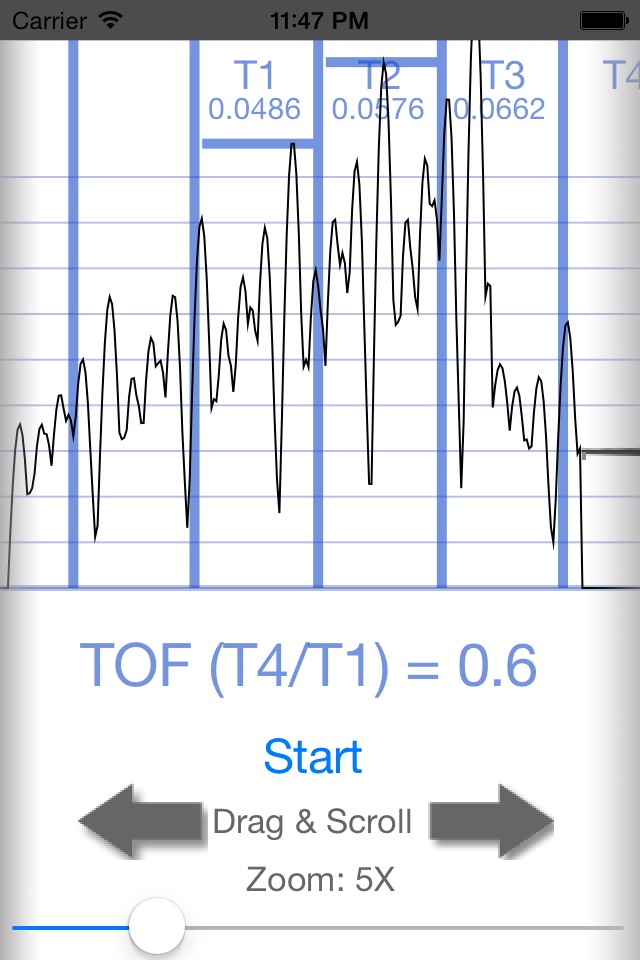
Train of Four app for iPhone and iPad
Developer: ObjectGraph LLC
First release : 20 Aug 2015
App size: 1.6 Mb
During administration of general anesthesia, neuromuscular blockade is best measured with a train-of-four (TOF) ratio technique, which utilizes a nerve stimulator and a measurement device, such as mechanomyography. During TOF stimulation, the nerve stimulator causes a short burst for four muscle twitches. The force of each twitch is related to the degree of neuromuscular blockade. By dividing 4th to the 1st twitch height, one can assess TOF ratio. The ratio >0.9 is considered as safe for extubation of endotracheal tube and complete reversal from the neuromuscular blockade. Although nerve stimulators are widely accessible to anesthesiologists, the measuring devices are not. Therefore, instead of measuring TOF ratio, anesthesiologist generally rely on count of twitches and pharmacological reversal for everyone. This practice has been shown to be problematic. Data suggest that even mild degrees of residual paralysis (TOF 0.7-0.9) may be associated with significant impairment of respiratory and pharyngeal muscle function. Several studies have demonstrated that many patients continue to arrive in the postanesthesia care unit with TOF ratios <0.9. By combining the built in accelerometer in the iPhone along with the app, we have developed an alternative way of measuring the TOF ration. Our app development team included an anesthesia resident (RB) and an attending (MP) who, provided the medically relevant content, and a computer programmer (KT) to translate the vision into the computers language. The next step will be a validation study of the predictive value of TOF ratio measured by iphone as compared with conventional mechanomyography devices and visual assessment.
